Tyan Transport HX TS75-B8252 Performance
At STH, we have an extensive set of performance data from every major server CPU release. Running through our standard test suite generated over 1000 data points for each set of CPUs. We are cherry-picking a few to give some sense of CPU scaling.
Python Linux 4.4.2 Kernel Compile Benchmark
This is one of the most requested benchmarks for STH over the past few years. The task was simple, we have a standard configuration file, the Linux 4.4.2 kernel from kernel.org, and make the standard auto-generated configuration utilizing every thread in the system. We are expressing results in terms of compiles per hour to make the results easier to read.
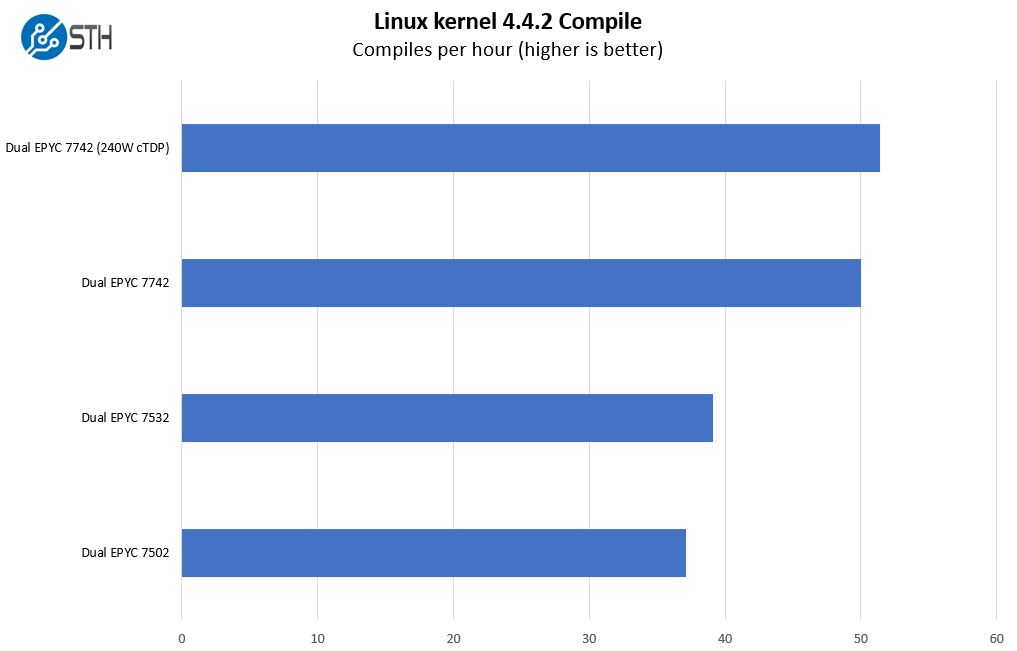
For this exercise, we are testing three different CPU options. We have the AMD EPYC 7502, as a lower-power option. We are using the EPYC 7532 as a higher-performance 32-core option. Finally, we have the AMD EPYC 7742 as our high-performance 64-core option.
c-ray 1.1 Performance
We have been using c-ray for our performance testing for years now. It is a ray tracing benchmark that is extremely popular to show differences in processors under multi-threaded workloads. We are going to use our new Linux-Bench2 8K render to show differences.
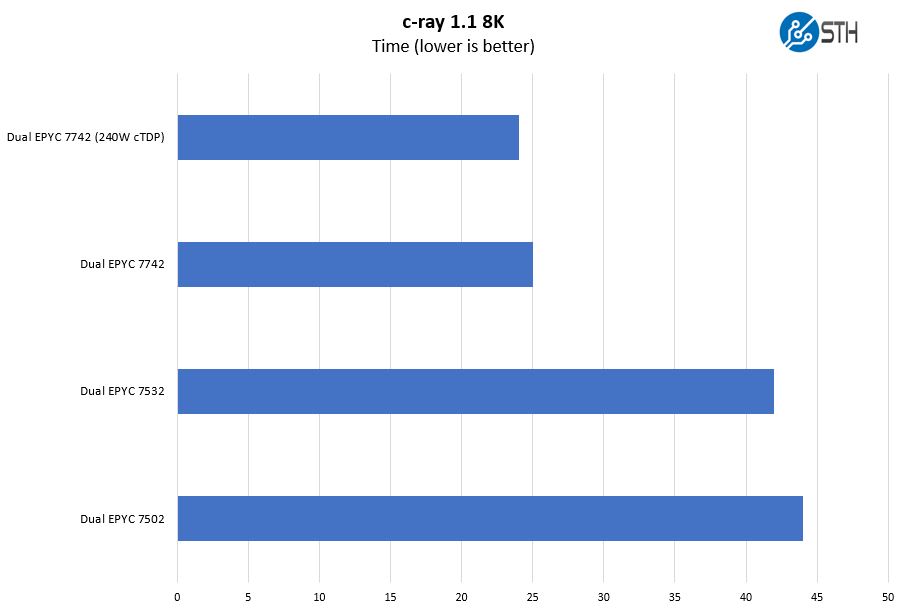
AMD has the ability to scale the number of processor cores to 64 which is well above Intel’s current 28 core limit. The company has fewer SKUs and the big vectors of differentiation are between the core counts and TDPs of the CPUs.
7-zip Compression Performance
7-zip is a widely used compression/ decompression program that works cross-platform. We started using the program during our early days with Windows testing. It is now part of Linux-Bench.
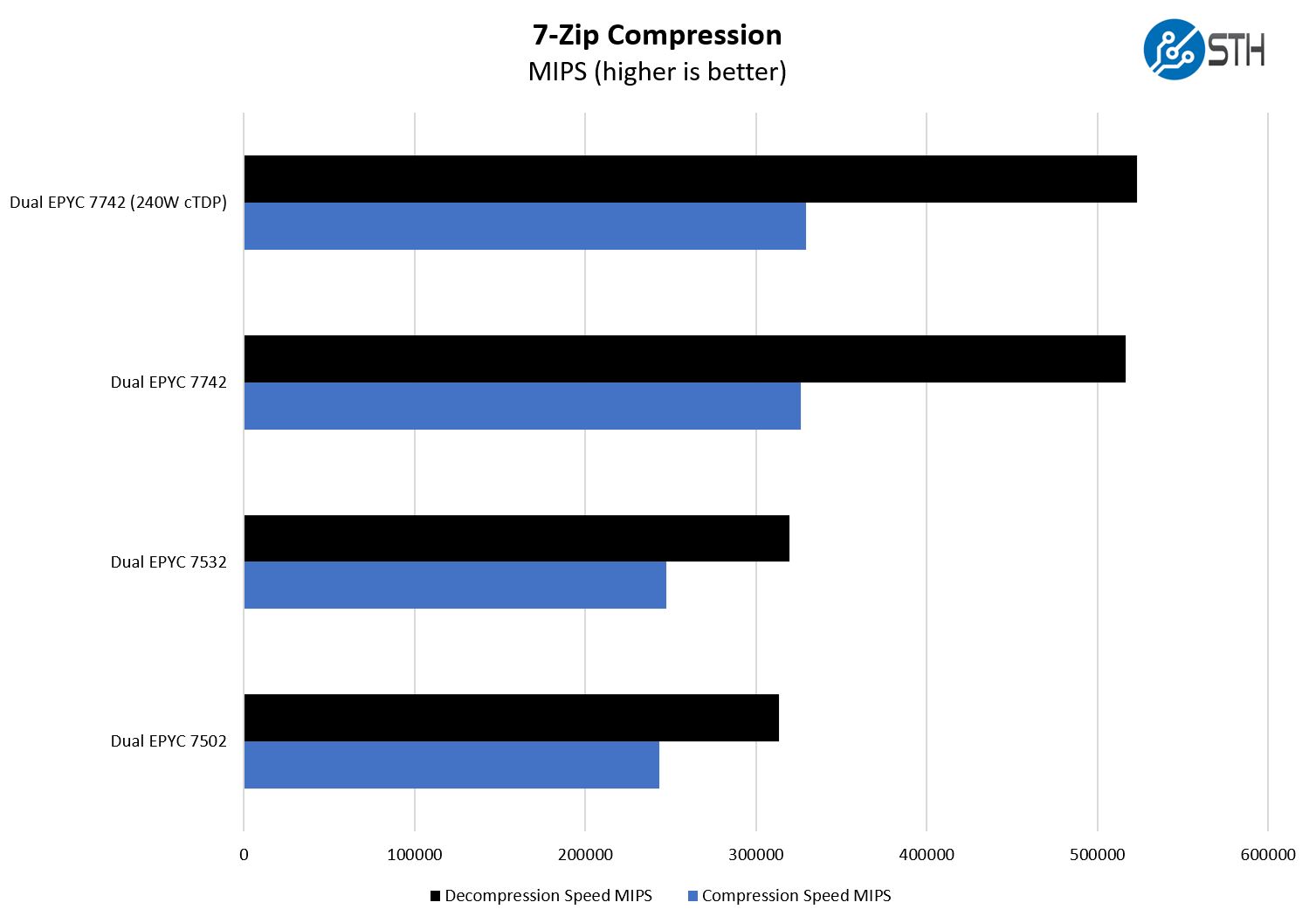
The Tyan Transport HX TS75-B8252 can handle up to 240W TDP CPUs which means it can power and cool almost every processor that AMD has. For example, AMD now has a frequency optimized CPUs that can utilize these higher TDP bands. We discussed those in our AMD EPYC 7F52 Benchmarks and Review.
OpenSSL Performance
OpenSSL is widely used to secure communications between servers. This is an important protocol in many server stacks. We first look at our sign tests:
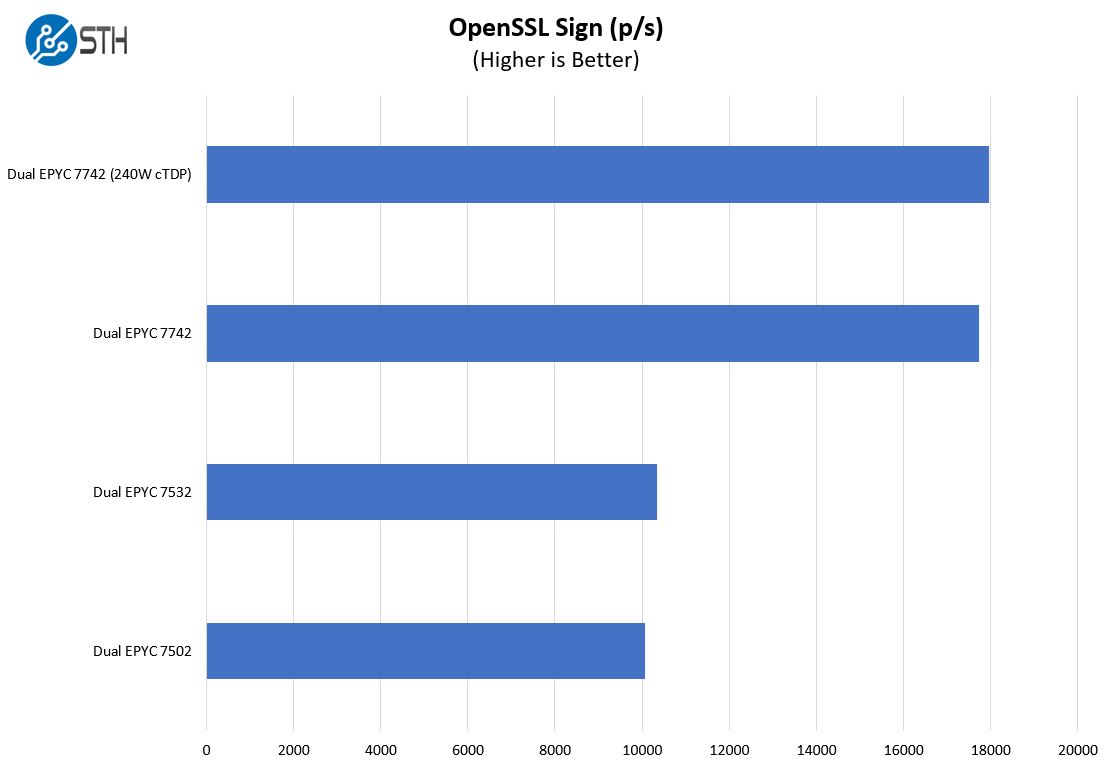
Here are the verify results:
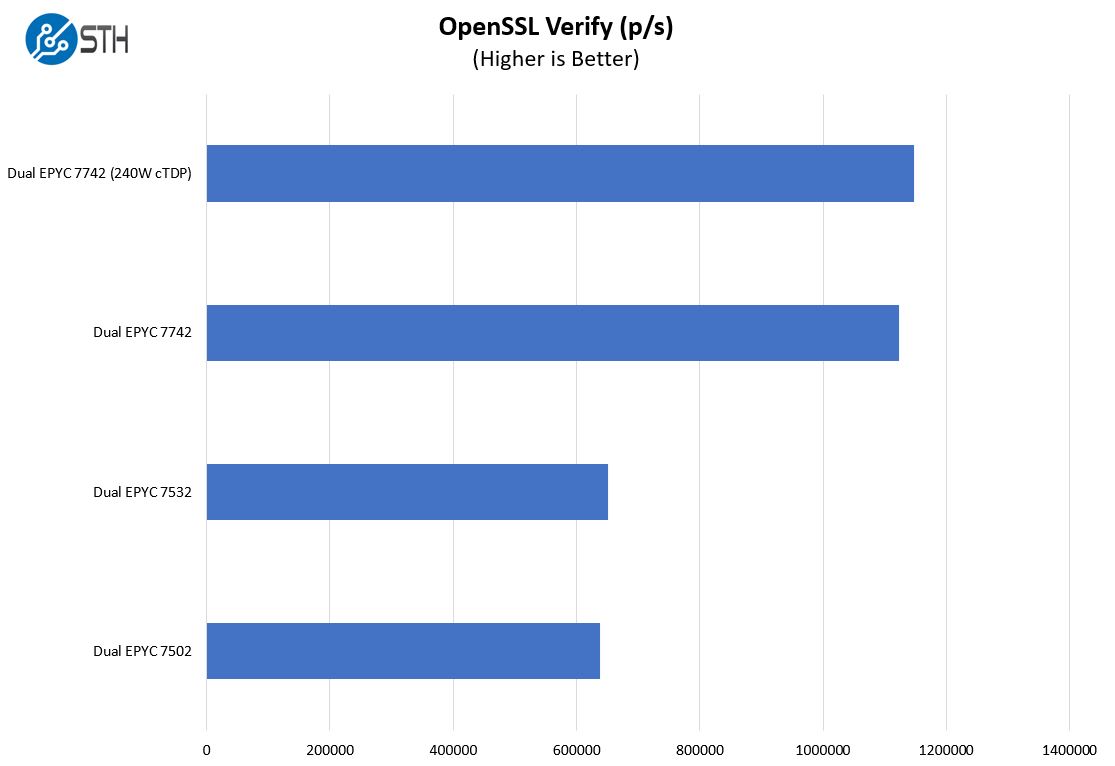
As you can see, we get a nice delta between the two 32-core parts the EPYC 7532 and EPYC 7502.
Chess Benchmarking
Chess is an interesting use case since it has almost unlimited complexity. Over the years, we have received a number of requests to bring back chess benchmarking. We have been profiling systems and are ready to start sharing results:
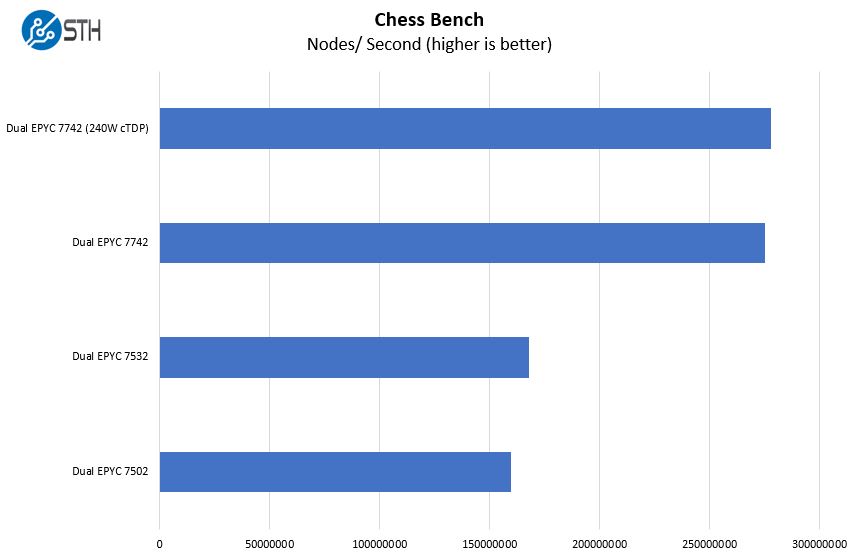
For those wondering, some AMD EPYC CPUs feature configurable TDPs or “cTDP” which allow chips to run at a higher TDP than their base rating. For example, the 64-core EPYC 7742 has a base TDP of 225W but it can run at 240W if the system allows for this configuration to be set. In the Tyan Transport HX TS75-B8252 we can utilize the extra 15W of TDP headroom which gives us a small but meaningful performance uplift. Effectively Tyan is allowing us to get more performance from these high-end CPUs at zero additional hardware cost and only incremental power consumption cost. That is a huge value driver for the server.
Next, we are going to move to our power consumption, server spider, and final words.

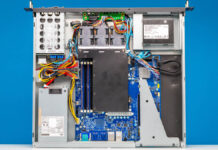

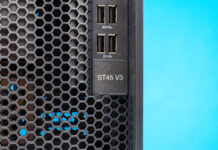
I come to STH to read server reviews. What keeps me staying is that I’m leaving feeling like I’ve learned more about the industry trends than anywhere else.